Hear from our Graduates
Munir Al Akari

Class of 2015, currently working as a Policy Advisor at Permanent Mission of Ireland to the United Nations, NY.
A dynamic, challenging, engaging and thought provoking journey right at the fusion of international conflict, social policy, human rights, race and ethnicity. Having professionally experienced the vast challenges of international conflict in the Middle East, this program, at a world class institution, provided me, and our class, with a focused yet comprehensive foundation of the theoretical frameworks that underpin social structures, institutions, governments and societal norms. Discussions were further enriched with the backdrop of critical and contemporary case studies in conflict, ranging from Palestine and Bosnia, to Northern Ireland. Lectures were delivered by academically and professionally experienced professors - coupled with valuable engagements and contributions from students who had come from all corners of the world. My own academic and professional interests lie at the intersection of policy and international conflict. This Sociology MPhil was a pivotal cornerstone in advancing my academic and professional career - particularly in understanding the dynamics of state institutions and their effects on society. My dissertation drew a comparative analysis of EU democratisation policies in Ukraine and Libya. The program equipped me with the academic knowledge and skills to both comprehend and hopefully influence some of the pressing challenges of today's global society.
Kristin Einarsdóttir
 Class of 2014, currently working on a filmscript called Chastity and as project manager for Humanity for Good.
Class of 2014, currently working on a filmscript called Chastity and as project manager for Humanity for Good.
I chose the course because in 2007 I founded a Humanitarian Charity, and also recently finished a Master's degree in Public Health. However I felt I needed to study the more theoretical aspects in the area of conflict resolution, race and ethnicity. The M.Phil opened a whole new world, and the flexibility and the acceptance for creativity on the course also gave me a platform to talk about issues I was and am passionate about. It opened up new possibilities I would never before have thought about, like writing a filmscript. The mix of backgrounds and perspectives among the lecturers was invigorating and gave me a solid foundation for my work, both in terms of analytical and productive skills and in understanding the dynamics of issues related to gender, racial and conflict theory. My final research was on the Role of Art and Culture Experiences exposed to young people living in Irish Social Estates. On completing the M. Phil course I have been working as an independent researcher and recently I received a grant from the Icelandic Film Board to write my first filmscript which takes on matters of the Catholic Church and mother and baby homes. I recommend the M.Phil course in Race, Ethnicity and Conflict to anyone who wants to better understand and engage with some of the most critical issues in the world today.
Robert O'Keeffe
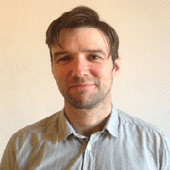 Class of 2013, currently a PhD student in the Department of Sociology.
Class of 2013, currently a PhD student in the Department of Sociology.
I was initially attracted to the Mphil in Race, Ethnicity and Conflict because of the strong focus on the use of critical theory to understand how society operates. My undergraduate dissertation focused on racism in the Dublin taxi industry and I wanted to continue this research at postgraduate level. Overall the course was perfect and included really interesting students from Nigeria, US, UK, Denmark, France, Germany, Japan and even a few from Ireland! The Professors were extremely enthusiastic about the course and provided a good balance between quantitative and qualitative research. While Ireland provides an ideal case study to show how the Racial State operates the course also provided modules that focus on the Israel/Palestine conflict, Forced Migration (particular focus on former Yugoslavia) and the politics of international intervention in conflict zones. Ultimately I was introduced to new ways of thinking and became highly reflexive of my position within Western Universal ideology. I am currently a PhD student within the department and continuing my research on racism in the taxi industry. It was the radicalism espoused by some staff, a brilliant supervisor and open-minded classmates that made this such a worthwhile experience and inspired me to pursue a career in academia.
Michelle Carpenter
 Class of 2012, currently working as a Human Rights Analyst
Class of 2012, currently working as a Human Rights Analyst
Having not previously had much experience in the discipline of Sociology, completing my masters with the number one ranked Sociology department in Ireland was the only choice for me. The MPhil in Race, Ethnicity and Conflict provided me with the unique opportunity to gain in-depth knowledge in the fields of race theory, human rights, gender issues, conflict and resistance. The course incorporated the right mix of lectures, individual projects, field research and guest speaking seminars to ensure that we had a good balance between classroom and real world learning. In order to complete my Masters thesis, I conducted ethnographic research in the Middle East, which culminated in my completed work entitled: Responding to Racism: The Attitudes and Practices of Westerners in Dubai. Compiling this in-depth research gave me key skills that are essential to my current line of work. I cannot recommend the staff in Department of Sociology highly enough. Each member of the team went above and beyond to ensure we were provided with the necessary support to achieve our full potential. I find myself applying the skills gained from the MPhil on a daily basis, and I now navigate the field of human rights research fully confident in myself as a researcher and the expert knowledge that that I have been given through this programme.
Benjamin Hammond
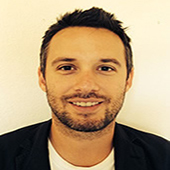
Class of 2011, currently working as a Public Affairs Analyst, City of New Orleans.
I came to the MPhil from Morocco, where I directed cultural exchange programs for several years. After visiting the campus and meeting the MPhil coordinator, staff and students, I knew the program was a good fit. The MPhil was attractive because the coursework draws from a variety of disciplines – sociology, political science, cultural studies, gender studies, migration studies and human rights – weaving them into a coherent degree program. Lectures and discussions benefitted from the diverse training of professors and students. I did my dissertation research on graffiti in New Orleans, where I also worked for Bard Early College – a non-profit college offering accredited courses to high school students at no cost. I was then hired by the City of New Orleans to develop a job-training program and consult on community engagement strategies. The MPhil was a great opportunity for me to pursue my interests in identity and culture with guidance from experts in the field. I strongly recommend the MPhil to anyone seeking a program that is rigorous, engaging and meaningful.
Judith Brown
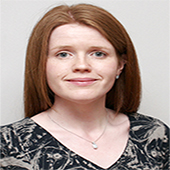
Class of 2010, currently working in development cooperation and diplomacy.
Towards the end of my degree in European Studies I became interested in migration and migrant communities in Ireland and Europe. I still had many questions about national identity, state policies, and social research, and so decided to undertake the MPhil in Ethnic and Racial Studies. I liked that the topics covered were both broad and deep, with a good combination of theoretical and applied issues. I also appreciated the programme’s comparative approach. The staff were open, approachable, and passionate about their topics. The teaching style for some modules was challenging and at times polemical, which helped me appreciate a range of perspectives and also articulate more clearly my own views. I wrote my dissertation on citizenship and the Russian-speaking populations in the Baltic States. Subsequently I went on to Cambridge University to do a PhD on memory politics in Crimea. The MPhil gave me sensitivity to complex interethnic relations and a good understanding of the relationship between the local and supra-national levels; this certainly helped make my PhD application stand out and informed my research approach. I would recommend the MPhil programme to anyone looking to nuance their understanding of today’s big questions on mobility, identity, and social equality.
Martina Byrne
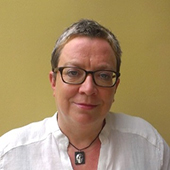
Class of 2008, currently working as a lecturer in the School of Social Policy, Social Work and Social Justice at University College Dublin.
Simply put, the MPhil in Ethnic and Racial Studies in the Department of Sociology TCD changed the direction of my professional life. In 2007 I took, as I thought at the time, a year out from a career I enjoyed in the corporate world to study the relatively new phenomenon of inward immigration in Ireland. Within weeks of the course starting I was very busy and very happy with my choice. The reading lists mixed classic and contemporary literature; the teaching style was interactive and encouraged critical thinking and debate. With fellow students of diverse backgrounds, ages, and nationalities, those debates often continued in the pub on Fridays! There were lots of readings to do in preparation for class and, while they were intellectually challenging, they were also compelling and stimulating and you could see why they were recommended texts. Students were encouraged to incorporate their interests into assignments and research and I was able to carry out my own empirical study into the response of Irish professionals to immigration for my MPhil thesis. This became the pilot research for my PhD which I completed in 2013. Subsequently I lectured in Race, Ethnicity and Identity, among other subjects, in Trinity and today I lecture in sociology in UCD to MSc and undergraduate students. The challenge I set myself as a lecturer and researcher every day is to do for my students what the staff on the MPhil did for me.
Jonathan Lacey
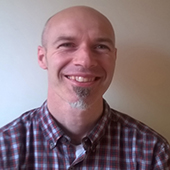
Class of 2006, currently working as a Drug Outreach Harm Reduction Worker for Belfast Health and Social Care Trust.
This course offers a multidisciplinary approach to race, ethnicity and conflict. It will take you in unexpected directions and challenge you at a personal and political level. I enrolled in this course in an attempt to understand the changing nature of Irish society. It delivered on this account, and much more, by focusing on local and global issues. The lecturers are enthusiastic and erudite, and treat students as collaborators in the learning process, rather than passive recipients of knowledge. Class discussions are integral to this course, where concepts and opinions are deconstructed. Students are also encouraged to be bold in their research enterprises, and my own MPhil thesis led me to unexpected places. I analysed the transnational engagements of a Turkish-originated socio-religious community based in Ireland. This MPhil provided me with a strong analytical, theoretical and methodological foundation, from which I went on to complete a PhD. I highly recommend this course, particularly for those who intend pursuing an academic or activist career.

